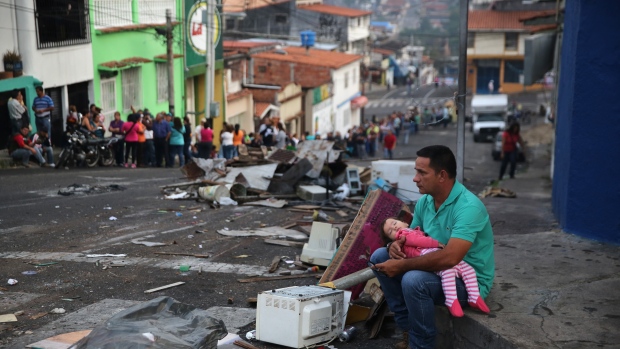With proven oil reserves of almost 300 billion barrels, Venezuela surpasses Saudi Arabia as the country with the largest reserves in the world. But massive oil wealth has not been enough to mask years of poor governance and unsustainable policy initiatives; weaknesses that have become apparent now that oil prices have taken a hit.
Deteriorating economic conditions have morphed into a full blown humanitarian crisis with widespread food shortages and lack of basic medical supplies.
Experts in the oil and gas industry say on the spectrum of worst and best case scenarios for oil producing countries in the world, Norway ranks best and Venezuela is now viewed as one of the worst.
The country depends on oil for more than 90 percent of its export earnings. Falling oil prices have resulted in more pressure being placed on the economy. The country’s cash reserves have dropped to $10.4 billion, equivalent to only 10 percent of its outstanding debt.
Venezuela’s predicament, Oil Price reports, has ramifications for the oil market. The country was desperate for collective production cuts from OPEC members, and has enthusiastically supported the deal. Venezuela pledged output cuts of 95,000 bpd from October levels, promising to average 1.972 million barrels per day between January and June. Early data shows that Venezuela has not yet followed through on those cuts. Reuters says it is achieving only a 7 percent compliance rate. But the government has ordered cuts from some PDVSA operations in Orinoco Belt, a sign that the Maduro government has intensions to follow through on its pledge. Non-compliance could rattle the resolve of other OPEC members, ultimately leading to an unraveling of the deal, which would likely push oil prices much lower and worsen Venezuela’s crisis.
The scenario unfolding in the South American country is a stark reminder to other oil producing nations that oil revenue alone is not a cure-all for bad governance and failure to implement sound economic policies.
Already its neighbor to the east; Guyana, set to become a major oil producer by 2020, is grappling with policy changes and the drafting and passing of new laws and regulations that would govern the emerging industry . Recognizing and understanding the shortcomings of Venezuela and other countries that got it wrong when it comes to effectively managing oil wealth, could help ensure Guyana gets it right.




